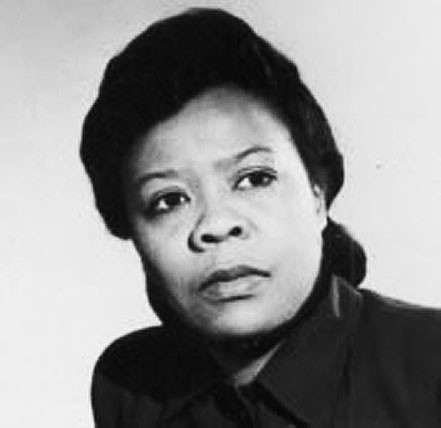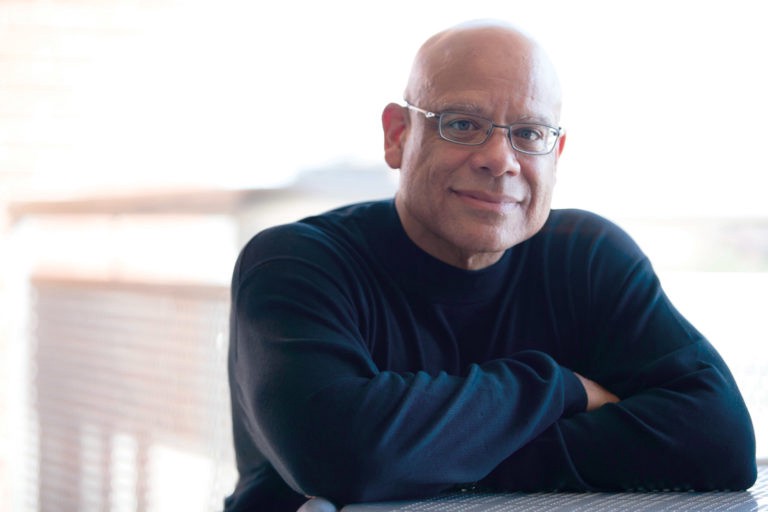
by Sekou | Jul 31, 2020 | Features, Reviews
“Tryna be the greatest, that shit been dead, I’m tryna be the happiest I can be instead.” This is one of the lyrics from Logic in the album that we are reviewing today. His final album, No Pressure. I typically don’t start out with lyrics of songs from albums I’m reviewing, but this one is very important as it sets the tone of the album. This album serves as a victory lap, and a cathartic affair for Logic. In the words of Thalia, “Welcome to the No Pressure project.”
So, let’s put some things in context: Logic first gained popularity in the early 2010s with his Young Sinatra series of mixtapes (Note: he had Young, Broke, and Infamous in 2009, but YS is how he gained popularity), and when I tell you that they were dope… Do yourself a favor and find them on Soundcloud. Then, he released his first studio album in 2014, the precursor to the album I’m reviewing, Under Pressure. And Under Pressure is unbelievably good! It has a connected concept, the production is great, and it contains Logic’s best song, “Gang Related”. The party don’t stop there, though, as he released something each year after that, but something happened in 2017. This is when he released Everybody. Everybody is probably his most commercial album, as it has the song, “1-800-273-8255”, the Suicide Hotline number. While this was a very noble song to have, the album itself… paled in comparison to his previous works. Why? Well, there was an insane amount of redundance (I know y’all have heard the Logic is biracial memes), the concept was pretty loose, and, most crucial, he wanted to please everybody.
I say this to say that No Pressure is not like that. Logic’s work has been inconsistent over the past couple years, but this is changes the game. The album opens, welcoming us to this project, and Logic talks about how when he was growing up, he was seen as lesser, how he knew he wanted to see his crew next up, like cotton material, and how people are super nosy, telling you to do what you should do when they don’t even know half of what you know. And then, we get into “Hit My Line”. He talks about how it’s going to be a good day, how people stay bitchin’ on Twitter, how politicians lie, and how #slacktivism is at an all-time high. Then… GP4.
I… MISSED… THIS! For those that don’t know, Logic has a series of songs, called “Growing Pains”. This is the 4th installment, and goodness gracious, does it go HARD! He samples, “Elevators (Me and You)” from OutKast, the beat and the chorus, where he talks about how we’ve been in a perfect harmony and have come a long way since the projects. He talks about how he rhymes fast because of his anxiety, has a story describing a night for him when he was younger in Maryland, talks about how he hit up Erykah Badu for the blessing to use a beat for this album (man I is) even though she doesn’t own the sample, and two of my favorite lines off this entire album. “Trigger-happy police tend to trigger happy people.” This is a great line that sums up what happens when we see countless faces that look like us lying lifeless on the news and social media. It doesn’t describe everything, but that line still holds power. The other line is that he keeps it G, kickin’ in the door like Track 4 from Biggie’s Life After Death, and he tells us to do our research and we’ll find the key. So I did my research, on Genius and I found this. Kick in the Door is in the Key of G Major. YOO!!!!!!!!
“Open Mic/Aquarius III” is dope as well, the first half being where the opening line of this review came from. The latter half is about how he used to only care about his career, but now he has something even better to care about: his son. “Soul Food II” talks about how we’re not going back, just moving forward and about how people don’t love your new stuff until it becomes your old stuff. The 2nd half expands on the story he was telling in one of his previous albums, The Incredible True Story. (My personal favorite Logic album)
Production- wise, this album is INSANE. Using a “Dreamflower” sample, using multiple OutKast samples, and having beats that truly match the songs. “Aquarius III”, for example, sounds reflective. Lyrically, Logic is mature on this album, for the most part. Plenty of these songs have this message, talking about how we need to live our lives for ourselves and not for others, how there’s a reason he’s in a mansion, and the dude hatin’ and following him just to criticize is in a cot (this doubles as mature and immature), and of course, his current life. This is where Logic is his best and happiest. On “DadBod”, Logic talks about his everyday life, which is filled with diapers, feeding, buying food, and deciding between which brand of trash bags he wants. This is fantastic, because it shows how he has matured. He even says himself that he’s not a kid anymore, and he’s not about to rap about the “good ole days”, like people getting together talking about their fun times back in high school or college. He’s about moving forward, not back. “Dark Place” probably takes the cake for finishing out top 5, as he talks about how he still deals with depression and anxiety. He deals with not feeling good enough, Black enough, and worried about saying too much at times. He talks about his Peace, Love, and Positivity motto, but confesses that he still searches his name on Google, and just sees posts about how he is trash. A big thing about this song is the fact that he acknowledges that it’s okay to be sad and end this song sad, a powerful statement. Positivity has never been about smiling through BS. It’s about feeling your feelings, acknowledging them, and knowing that tomorrow is coming. We end the album with “Obediently Yours”, a song that apparently was meant for Ultra 85. (Heard Em Say’s outro technically concludes the No Pressure program and welcomes us to Ultra 85, 2 songs) It is the audio of Orson Welles, talking about equality and how we’re all in this together. And how the privilege need to use their privilege to help the less fortunate.
With all this said about the album, there are unfortunately still some rough spots. Logic has been pinned as repetitive at times, and… that unfortunately doesn’t change in this album. A lot of songs discuss the “rags-to-riches” theme, and after the first couple songs of it, you end up getting annoyed by it as opposed to endeared by it. Then, we get into some of the less desirable songs, in my opinion. “Perfect” will probably get the most hate, but it is just okay. Not good or bad, just okay since it’s only function is a breather and brag rap song. It’s sandwiched between two great songs so it is just a breather. “A2Z” is a song that I can’t get into. The idea of it seems to be one of those alphabet cyphers, but that concept falls flat on its face and makes it rough to listen to. However, the biggest issues aren’t the songs, but the repetitiveness within them.
Overall, this is a 3.75/5. This album is really good. Logic knew that he had to bring it for his final album, having been heavily criticized for the quality of his albums in the past few years. He came with something that felt like a love letter to his old fans, as well as advice. He brought back every era of his, and was able to make it sound fresh and fun. While he definitely had his repetitive moments, Logic made a fantastic sequel to Under Pressure. Now, let me say this: Logic was one of my favorite rappers several years ago. I listened to his mixtapes, listened to Under Pressure, listened to The Incredible True Story, and so on. I was waiting for this Logic to come back. Not Logic talking about the same subject matter, but Logic showing how damn good he was on wax. I’m beyond happy that we got this for his final album. Logic, it has been dope to listen to you, and I hope you are able to live your life like the title of this album: with No Pressure. MT Out!
Overall: 3.75/5
Favorite song(s): GP4, Dark Place DadBod
Least Favorite: A2Z
Photo Creds: samspratt

by Sekou | Jul 27, 2020 | Black Innovators, Features
Do you have a phone? Do you make calls on it, especially now in these times just to hear someone’s voice? Do you know someone who has a hearing aid so they can hear better? Do you remember tape recorders? Do you know what these all have in common? Microphones! All of these devices use microphones so we can hear ourselves and so others can hear us. These microphones used are called electret microphones, founded by a Black Innovator, named James. E West.
Born on February 10, 1931, much like other innovators who enjoyed building things, James E. West also enjoyed tearing things down. There is a method though. It was stated by West, “If I had a screwdriver and pliers, anything that could be opened was in danger… I had this need to know what was inside.” It’s important to note that while building things is important, taking things apart is just as important, as it is helpful to know what makes things work. West really started to truly love the concept of electricity after an accident with a radio that he was deconstructing. He knew that he wanted to pursue science academically, much to the chagrin of his parents. See, James E. West made this decision in the late 30s/early 40s in the South, back when Jim Crow laws were in place. His parents believed that these laws and racism would hinder his road to becoming a scientist and they wanted him to become a physician instead. However, Mr. West is not one to be deterred from his path.
In 1953, West attended Temple University to study physics and started working as an intern for the Acoustic Research Department at Bell Laboratories in New Jersey. After receiving his bachelor’s 4 years later, Bell Laboratories hired West as an acoustical scientist at a full-time capacity. It was here where West started to develop the electret microphone.
While working at Bell in 1960, West partnered with Gerhard M. Sessler, a fellow scientist, in order to develop a microphone that was inexpensive, sensitive, and compact. This electret transducer-reliant product took two years to finish development on, and four years after that point, the electret microphone was in mass production. Here’s the sheer importance of it and how much it is used: the electret microphone, the invention by West and Sessler, became the industry standard. Today, 90% of all contemporary microphones, ones in telephones, camcorders, hearing aids and more, use their technology. This is amazing how much we use this device in our everyday lives, and it’s sad that plenty of us haven’t heard about James E. West before.
About 30 years later in 1997, West was appointed president-elect of the Acoustical Society of America. He then joined the National Academy of Engineering a year later. A year after that, West and Sessler were inducted into the National Inventors Hall of Fame. Not only was James E. West innovative in his inventions, he was also innovative in recruitment of the STEM field. He worked with initiatives that entreated women and students of color to explore and pursue careers in the STEM field.
In 2001, after over 40 years with Bell, James E. West retired. Usually, after retirement, you don’t really ask, “What’s next?” Well, James E. West asked himself that, and decided to become a research professor. Among all the universities with whom he had intrviews, James E. West chose Johns Hopkins, specifically their Whiting School of Engineering.
This isn’t it with James E. West. This man has developed more than 250 patents on microphones and polymer-foil electrets. He has received plenty of accolades and honors. He also was known as a prolific writer, authoring and contributing to numerous scientific papers and books. James E. West’s discoveries are relatively recent, as this was about 50 years back. That is not a very long time, and it’s unfortunate that more people don’t know about him, or haven’t learned about him. Well, I’m here to do my part. Thank you, James E. West for your contribution and work, your legacy will not be forgotten. MT Out!
Biography.com Editors. James E West Biography. 2 April 2014. 23 July 2020.
Photo creds: National Inventors Hall of Fame

by Sekou | Jul 22, 2020 | Features, Reviews
http://https://www.youtube.com/watch?v=-iNWEwLfkv8
DJ Khaled… is a genius. Like, seriously, the man is a gem. He does the absolute most by doing the very least. Dude has meme-ifyed himself so much that you have no choice but to chuckle when you see him. From “Anotha One” to “Assad’s my son” to saying his name to the popular “WE DA BEST MUSIC”, Khaled’s whole career has partially been making you remember his name (literally). The other part of his career has been dedicated to assembling different rappers and singers to make amazing collabs and hits. This time around, he got one mega star in Drake. So, how was this song?
Y’all… I hate how much I love this. Before I truly get into the review, let me discuss my feelings about Drake: I think that he is the hitmaker of this generation, and has impressively had more Hot 100 Hits than the Beatles. With that said, he’s not the greatest rapper… his allegations of ghostwriting definitely paint a different picture of his most “personal” raps. Then, how he handled the beef with Pusha T after “The Story of Adidon” was definitely not the way to handle rap beef, talking on different shows and leaving Notes on his phone rather than, you know, responding with another diss song. However, he is still a pop icon, and will be remembered as such. So, why do I hate how much I love this?
Well, the lyrical content isn’t anything special. There is a funny bit when the song starts where Drake just says, “Bitches”, and that’s it. That is just so funny to me. He has some lines in there about how he tears people to pieces who come for him, how he’s a popstar but not on any bubblegum shit, how he was under wraps last year but this year he came to take over, how he gave Ariana and Selena his Platinum Visa, and how he wants a long, legendary life but a quick death. Again, pretty average and standard lyrics, but the flow that Drake copie- uh, uses, is really good. What gets me is the chorus. Drake talks about how girls be makin’ his hotline bling all the time like he’s locked up and how cops pull up like he’s giving drugs, and the best line: I’m a popstar, not a doctor.
The reason I love this song: simply put, it is INFECTIOUS. I heard it when it came out and was like, “okay not bad”. Then, while I was listening to it to prep for this review, I found myself rapping along with it, bobbing my head, and dancing to it. That’s the thing with Drake: while his lyrics are usually surface level, he never fails to make you remember him or his songs. He always has something, whether it’s “God’s Plan”, a viral dance, or just a hit song rich with Instagram captions like this one, he always makes sure he stays in your head. DJ Khaled and Drake are a perfect pairing.
This song is a 3/5. It’s fun, but it is still just a run-of-the-mill hit song. Nothing too special like Khaled’s collaborative efforts or Drake’s usual hits, but still something that should keep you entertained for a few months. Take Care, y’all! MT Out!
Photo creds: OVO/WeTheBest/Epic Records

by Sekou | Jul 15, 2020 | Features, Reviews
There are so many pairings that we have heard and want to hear in music. Kanye and Jay Z, Kendrick and Cole, Andre 3000 and Madlib, and so many more! However, there are sometimes surprising music combinations that we hear, and didn’t know that we wanted to hear until we heard them. This brings me to Kid Cudi and Eminem. For those who don’t know, Kid Cudi is a phenomenal artist who almost trademarked “emotional rap”. Listen to Man on the Moon, the album and you’ll see why. He is one of the people that made it cool to show your feelings in rap. He’s also credited for helping with 808s and Heartbreak from Kanye. With that said, him and Eminem is definitely an… odd pairing, but it is a great pairing.
Cudi starts it off talking about how he’s changed since we last heard him, and how he’s got a brand new attitude. Cudi was sounding a little harder. He’s talking about how he’s grown and coming in with some great wordplay. He also talked about how people don’t listen to the words in songs, making a point about how beats are usually what get people’s attention. Cudi sounds healthy, and sounds like he knew he had to come with a hard verse, seeing who he made this song with.
Eminem is just… Like, he’s almost 50! How are you still barrin’ people like this at 50?? He starts off his verse by talking about how he will be the first person to give Father Time a K.O., shouts out Lil Wayne and Snoop Dogg, the beat slightly shifts, he addresses how the haters are mad at how good he is, but can’t seem to keep his name out of their mouths, he has a basketball and mouthwash metaphor that I refuse to spoil, because of how happy it made me when I heard it and I don’t want to take that away from any of you. He talks about how people call him the King of Rap, and that it isn’t his words and how he’s the King of Cussing; then, he starts talking about the things that have been going on in the world. He goes off on Drew Brees for his fumbles this year (and I’m not talkin’ football) and discusses the people that are in office right now, and how the pandemic has been handled. He discusses people not wanting to wear masks, and how not wearing them can literally kill him and others. He then gives prayers to George Floyd and Ahmad Arbery and talks about how so many cops are dirty and how the murderer of George Floyd was kneeling on the carotid artery of George. Eminem truly gets into his political style here, and this is something that is needed right now.
Overall, this song is a 4/5. Its weakest point is some of Cudi’s rhymes being off, as well as a pretty average beat. With that said, it is still worth giving a listen! MT Out!
Photo: The Adventures of Moon Man and Slim Shady Cover Art

by Sekou | Jul 13, 2020 | Black Innovators, Features
Let’s talk about neighborhoods. Now, there are plenty different types of neighborhoods. We have some that are big, some that are small, some that don’t have an official neighborhood name but are better communities than the gated communities, we have so many! One of the most important things in a neighborhood is safety. No matter how safe you think your neighborhood is, most houses have some type of security system. These security systems help us know when someone is trying to break in, when someone is at our doorstep, or even have facial recognition. Do you know how security systems got started, though? The reason was for safety, and the innovation was by none other than a Black woman. Let’s talk about Marie Van Brittan Brown.
Born October 22nd, 1922, in Queens, New York, not much is known about her early life, but she was a nurse and had two children. One of which became an inventor. Living in Queens at this time, her husband was an electronics technician by the name of Albert Brown. Their work hours weren’t the standard hours that you might be thinking of, and the crime rates were high in Queens. When the police were called, they took their sweet time and they were still of little help. Brittan Brown decided to take her safety into her own hands, In comes the security system.
Her security system was the blueprint for the features we have in modern security systems. For example, her system had peepholes, a camera, monitors, and a two-way microphone. This was the foundation for the two-way communication and surveillance features we have today. Lastly, there was an alarm button that could be pressed to contact the police. Three peepholes were on the front door for different height levels. Top was for tall, bottom was for kids, and middle was for average. On the other side of the door there was a camera attached that had the ability to slide up and down and allow the person to see through each peephole. The camera would pick images up that were transported to the monitor wirelessly, and that monitor could be anywhere in the house so you could see who was at the door. (Rebecca Hill, 2016).
Remember me talking about that two-way communication system? Well, Brown made a component that allowed her to speak to the person outside. With the push of a button, Brown could notify the authorities if she thought the person was an intruder. If not, then she could unlock the door with a remote. Can we just talk about how innovative this is? I mean, the intricacies of this is so amazing, especially for the time period! On December 2nd, 1969, the application for the “Home Security System Utilizing Television Surveillance” patent was approved after 3 years. This security system gained Brown an award from the National Scientists Committee, as well as an interview with The New York Times 4 days after the patent was approved.
This invention was truly a blueprint for alarm triggers, monitoring systems, instant messages to authority and so much more. This invention started ADT and Ring, and is still used today in small businesses, apartments, small offices, and even in single-family homes. The Browns’ patent is still referenced by other inventors.
The Black mind is so beautiful. We have something we feel as a problem, and we get right to work trying to fix our problem. Marie Van Brittan Brown, not just a Black person, but a Black woman, saw a problem and decided to invent something to make it better. She made something so beautifully intricate that laid the entire foundation for what we use to keep us safe today. And we still use it! That’s how good it is, and that’s how great Marie Van Brittan Brown is. Thank you, Marie Van Brittan Brown for your innovation, you will not be forgotten. MT Out!
Hill, R. (2016, April 11) Marie Van Brittan Brown (1922-1999). Retrieved from https://www.blackpast.org/african-american-history/brown-marie-van-brittan-1922-1999/
Photo Creds: Wikimedia

by Sekou | Jul 6, 2020 | Features
I think it is safe to say that computers are pretty important today. Think about it, we use computers just about every day, whether it be through our jobs or our personal lives (our phones are mini-computers, basically). With that being said, there are little things about computers that we take for granted. For example, the fact we have computers in our pockets, the fact that we have laptops and not computers and monitors, and the fact that our monitors aren’t in black and white. Yes, just like color TV, the color monitor needed to be invented, and who better to invent it than a Black man? Let’s talk about Mark Dean.
At 63, Mark Dean is the youngest person I have talked about so far, so this innovation was relatively recent. Much like all of these innovators, he developed his interests when he was very young. His interest wasn’t computers, though, it was building things! With the help of his father, who was a supervisor at Tennessee Valley Authority, he built a tractor when he was young. Think about a tractor, and think about you as a kid. Think about how rough it has to be to build one. Much like all innovators, Dean was destined for greatness.
Dean was not only fantastic at building, but he was a brilliant student, getting straight As in high school. It also didn’t stop at high school, as in 1979, he graduated from the University of Tennessee at the top of his class where he studied engineering. What was next for Dean? IBM
After college, Dean got hired on to IBM as an engineer. And of course, Dean excelled here. He worked closely with Dennis Moeller, one of his colleagues, and developed the Industry Standard Architecture systems bus, a new system that allowed disk drives, printers, and monitors to be plugged directly into computers. We take that for granted nowadays, and took it for granted 10 years ago. Dean developing this resulted in better efficiency, which we are all very thankful for. Much like all the other innovators, there isn’t just one invention.
Dean’s research helped make PCs more accessible, as well as powerful. In 1999, Dean developed the color PC monitor, something else that we take for granted, as we have those in tenfold now; and he led a team of engineers to create the first gigahertz chip. This chip is able to do a billion calculations a second, this is something that made life using a computer much easier. Dean holds 3 of IBM’s original 9 patents, and has over 20 patents associated with his name.
Dean furthered his education and got his master’s degree in electrical engineering from FAU in ’82. 10 years later, he completed his doctorate in electrical engineering from Stanford. In 1996, he was named an IBM fellow, the first Black person to receive the honor. In 1997, he was honored with the Black Engineer of the Year President’s Award, as well as being inducted into the National Inventors Hall of Fame. It didn’t stop there, as in 2001, he was contacted by the National Academy of Engineers to be a member.
The beautiful part about Mark Dean’s story is how recent it is. This all happened within the past 20 years, and this shows how Black Excellence still prevails at all times. To close this out, I want to use a quote from the man himself: “A lot of kids growing up today aren’t told that you can be whatever you want to be. There may be obstacles, but there are no limits.” Beautiful. Live your lives without limits, and thank you Mark Dean. Your legacy will not be forgotten. MT Out!
Biograhy.com Editors. Mark Dean Biography. 2 April 2014. 5 July 2020.
Photo creds: University of Tennessee, Tennessee Alumnus







